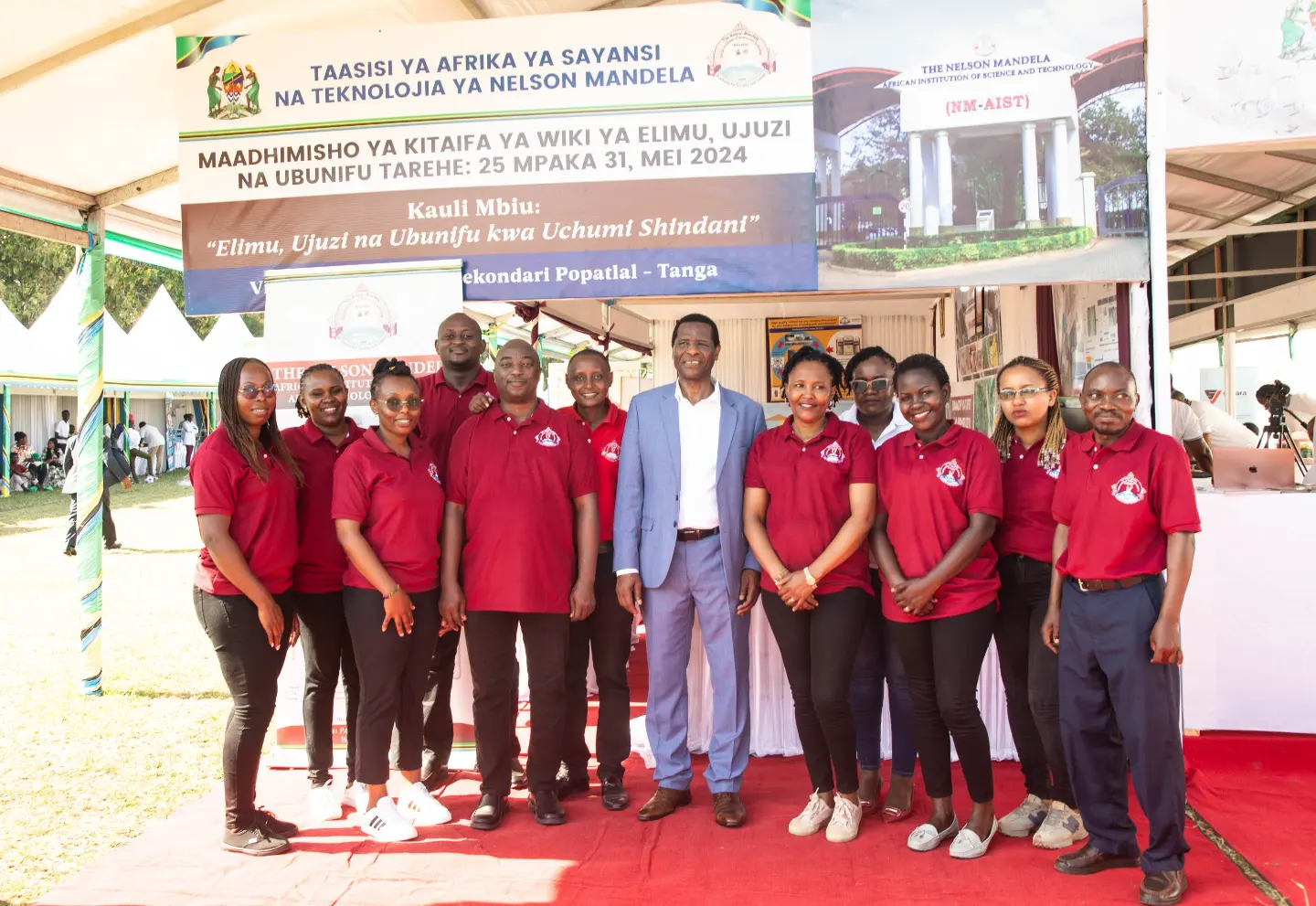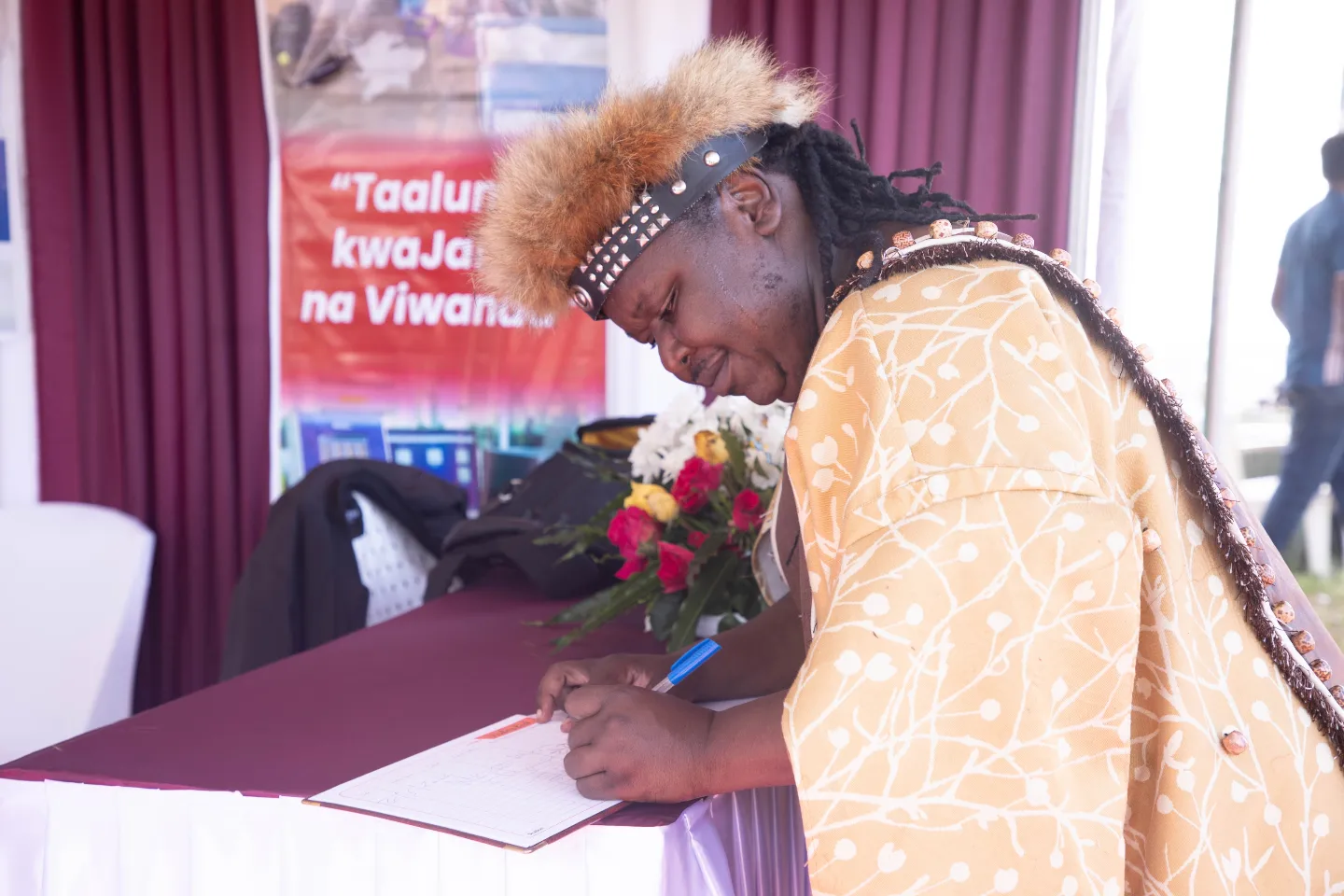Empowering Societal Progress: The Nelson Mandela African Institution of Science and Technology
- June 3, 2024
- Loyani Loyani
- 0

The Nelson Mandela African Institution of Science and Technology stands as a beacon, showcasing how academia can serve as a crucial pillar in addressing societal challenges and driving industrial growth through innovation.
These opinions were echoed by the renowned Music and Dance Artist, Mrisho Mpoto, during his visit to the institution’s Pavilion on May 30, 2024, as part of the Week of Education, Skills, and Innovation exhibition held at the grounds of Popatlal Secondary School in Bombo, Tanga City.
“I commend the Nelson Mandela Institute for fostering professions that tackle society’s challenges through innovative research,” remarked Mrisho Mpoto.
He went on to elaborate on his learning experiences, which encompassed a diverse array of innovations, including methods for rearing black soldier fly larvae on sisal leaf waste, production of mineral and vitamin-rich instant porridge flour, leather tanning techniques, natural gas and sewage filtration systems, and nano filtration technologies.

Visitors to the pavilion also attested to the institution’s commitment to a new educational paradigm, emphasizing the importance of skills and innovation alongside traditional professions in advancing the country’s development.
Furthermore, the institution extends its impact beyond innovation, offering free guidance to the public on conducting research effectively through its Incubation Center. This initiative nurtures budding designers both within and outside the institution, with the overarching goal of generating innovative solutions to societal challenges.
Situated in Arusha, the Nelson Mandela African Institution of Science and Technology (NM-AIST) is part of a network of Pan-African Institutions of Science and Technology spread across Sub-Saharan Africa (SSA). Its mission is to train and develop the next generation of African scientists and engineers, poised to drive the continent’s development through the application of Science, Engineering, Technology, and Innovation (SETI).





 Visit Today : 1463
Visit Today : 1463 Visit Yesterday : 1776
Visit Yesterday : 1776 This Month : 3239
This Month : 3239 This Year : 122728
This Year : 122728 Total Visit : 809994
Total Visit : 809994